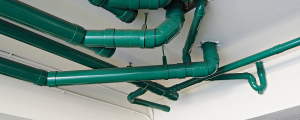One of the things about the modern world is that it is intricately complex. While things look quite simple on the surface, the deeper we examine life, the more we realize that everything is related to each other, especially through health and the environment. For instance, look at used cooking oil.
When we talk of pollution, we talk of fuel, greenhouse gas emissions, and oil spillage, but rarely does a layperson think anything of used cooking oil. On the contrary, speak to an environmentalist, especially someone who works with biodiesel, alternative biofuels, alternative energy, etc. You’d be surprised what they have to say about the menace of used cooking oil. Some of these key problems and their solutions are listed here.
- Health Hazards – The first problem with used cooking oil is the fact that it cannot be re-used for cooking because it has very high trans-fat as well as Total Polar Compound or the TPC as it is commonly called.
- Drain Clogging and Waterlogging – In urban settings with dense populations and a high density of F&B establishments of all sizes and consumption, used cooking oil is often discarded directly in the drains. This causes smaller drains to get clogged. This is also considered to be one of the significant reasons behind waterlogging in monsoons.
- Waste Treatment Efficiency – The municipal wastewater treatment plants lose their efficiency because of improperly discarded used cooking oil. Oil coating makes it very hard to process wastewater. It also leads to chemical reactions and the production of toxins.
- Water Pollution – Further, this oil eventually reaches the water reserves, where it causes significant harm to aquatic life, both plants and animals. The oil coating literally reduces the ability of fish and plants to breathe. For instance, not many of us know that One Litre of used cooking oil pollutes one million liters of water.
Every single one of these reasons causes not only a direct or indirect impact on human health, and the environment; but also, a significant impact on financial resources. It increases the cost of processing, reduces the quality of aquatic and marine food (seafood, etc.), and causes health problems.
While the government regulations for the disposal of used cooking oil are in place, there’s still a lot to be done in the segment. The ideal way to deal with a menace like this for Used Cooking Oil recycling efforts to be organized at all levels. Awareness at all levels, for all stakeholders, is the key to implementing effective and efficient solutions to this problem.
That said, businesses as usual have a higher civic responsibility for the communities in which they operate. So, if you’re a business that needs to meet the regulatory requirements regarding used cooking oil, we are just a message away!




